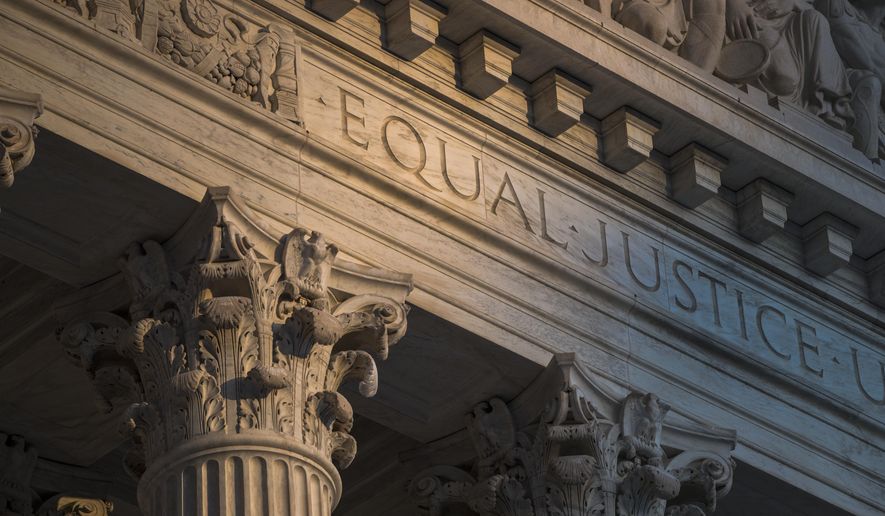OPINION:
Lawyers for Our Lady of Guadalupe School from the Becket Fund for Religious Liberty asked the U.S. Supreme Court to evenhandedly apply the court’s unanimous 2012 Hosanna-Tabor v. EEOC decision to two cases involving fifth-grade religion teachers at Catholic schools. The 2012 case also involved a religion teacher, but at a Lutheran school. Hosanna-Tabor held that the teacher couldn’t sue her Lutheran school for employment discrimination, because the government shouldn’t be in the business of telling religious schools who should teach religion.
That common-sense principle is called the “ministerial exception.” It’s a narrow rule that provides religious groups with broad protection over how they chose a relatively small set of employees — those who “lead,” “teach” and “guide them on their way.” On Monday, Our Lady’s lawyers simply asked the justices to apply this narrow rule to religion teachers at Catholic schools, too.
From somewhere, elsewhere in the solar system, far from planet Earth, the lawyer for the disgruntled teachers claimed that protecting the two Catholic schools in this case would affect “millions” of individuals. This despite the fact that there are only 335,760 religious school teachers in the entire United States. At one point, the lawyer for the two teachers even asserted that Our Lady’s lawyer “readily admitted that … all nurses in Catholic hospitals” would be covered by the ministerial exception.
But that’s not even close to what the Becket Fund lawyer said. In response to a hypothetical from Justice Elena Kagan, counsel for Our Lady of Guadalupe School had said that a nurse at a Catholic hospital who “prays with sick patients,” engages in “counseling and prayer” and is required to “otherwise tend to their religious needs” “may well fall within the [ministerial] exception.” But that’s the rare nurse. Such special religious responsibilities are not in most nurses’ job descriptions. Indeed, the teachers’ lawyer admitted that he couldn’t find any nurse’s lawsuit where a religious hospital had ever even raised the ministerial exception.
Our Lady’s argument was simple and limited. The Lutheran and Catholic teachers had different titles and different training, but their jobs were the same. They teach their fifth-graders religious doctrine for a number of hours each week, pray with them daily, take them to chapel and help them to grow in their faith. Same job, same rule: Religious schools, not the government, should be in charge of picking the school’s religion teachers. Courts should look first at what employees actually do, not simply their titles. Why? Because different religions use different titles for the same jobs.
Instead of grappling with Our Lady’s actual argument, the teachers’ lawyer invented a larger, more attractive target (“all nurses” “millions” of employees) and spent most of his argument taking aim at that. In fact, he went further in response to a question from Justice Samuel Alito, arguing that even a full-time religion teacher who only taught religion is not religious enough to be a “minister.” When Justice Kagan said she was “surprised” by his position, the teachers’ lawyer explained that he just did not think that teaching religion to kids is a job with “central” religious importance.
Let’s ponder for a moment just what the teachers’ lawyer was saying here. A teacher at a religious school, someone who spends all day, everyday teaching students to understand, engage with and practice their faith, is not covered by the Supreme Court’s — the U.S. Constitution’s — ministerial exception. Put another way, the teachers’ argument is that teaching the faith to the next generation is not a job with “central” religious importance. Incredible.
The teachers’ attorneys should know better. In Hosanna-Tabor, the Supreme Court recognized that a Lutheran elementary school teacher “performed an important role in transmitting the Lutheran faith to the next generation” and was, therefore, included in the ministerial exception. The Catholic teachers in Monday’s case do the same. On this basis alone, the Supreme Court should have no trouble deciding Our Lady of Guadalupe School.
• Andrea Picciotti-Bayer is legal adviser for The Catholic Association Foundation and co-host of the syndicated radio show “Conversations with Consequences.”




Please read our comment policy before commenting.